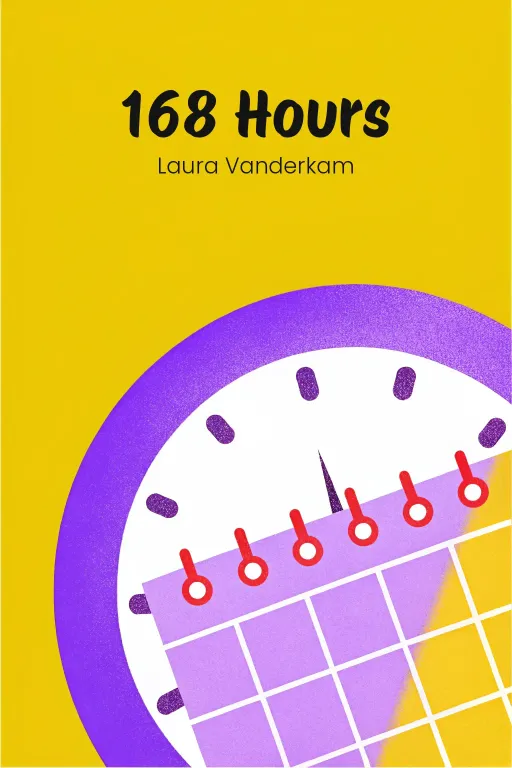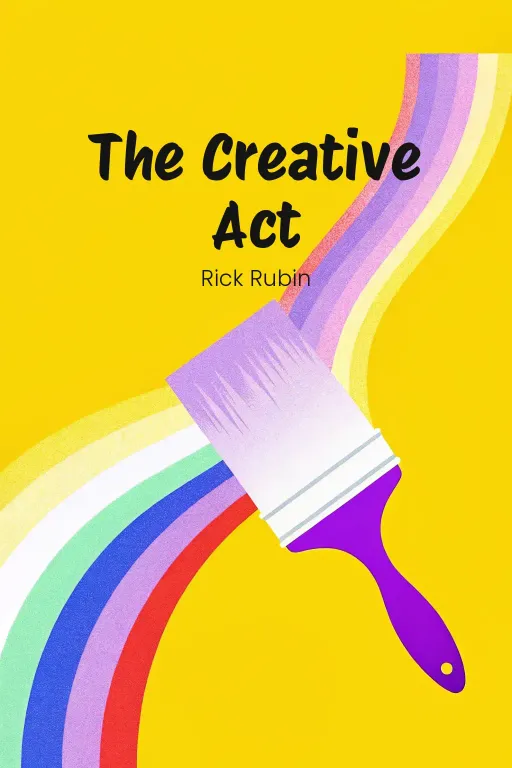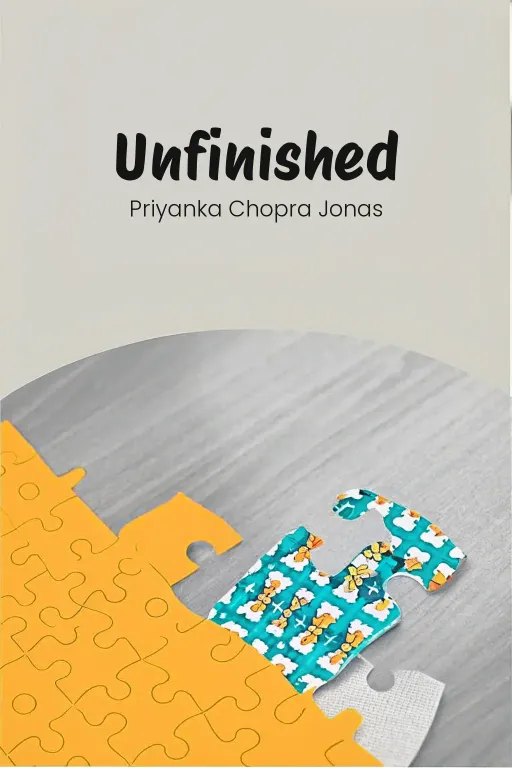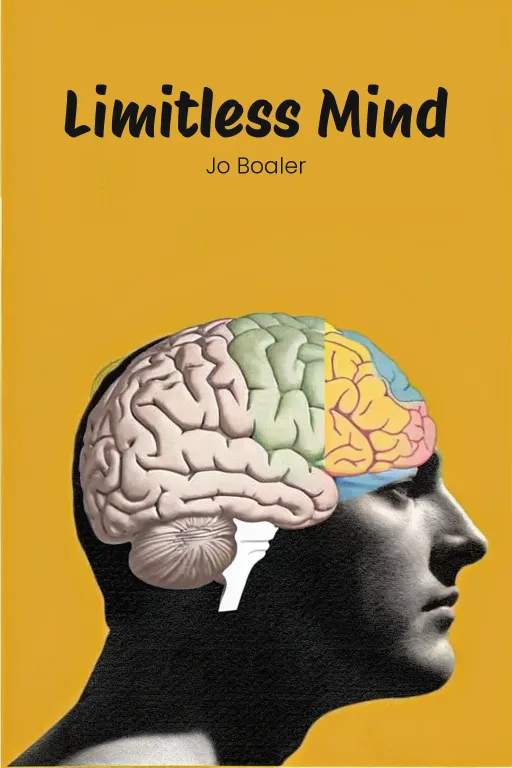
Shame Detox: Reclaim Your Worth
Podcast by Beta You with Alex and Michelle
Making the Journey From “What Will People Think?” to “I Am Enough”
Introduction
Part 1
Alex: Hey everyone, welcome! Today we're tackling something we all experience, but rarely discuss: shame. It's that nagging feeling that we're somehow inadequate, or have messed up, and it’s incredibly pervasive. Michelle: Exactly, Alex. Shame is like that persistent background noise in your head, hard to ignore. You might not even be fully aware of it, but it's driving so many of your decisions. So, the big question is, can we actually get a handle on this thing? Alex: Absolutely. Brené Brown offers some incredible insights. In her book, "I Thought It Was Just Me," she really digs into how shame works, both inside us and in the world around us. More importantly, she provides a practical way forward. She uses a combination of research, personal anecdotes, and concrete steps to show us how vulnerability, empathy, and connection can build our resilience to shame, and help us embrace our true selves. Michelle: Okay, so it’s psychology meets self-help, all geared towards navigating the messy business of being human. What's our game plan for today? Alex: We're breaking our conversation down into three key areas. First, we'll really understand shame – what it is, how it manifests, and why keeping it secret only makes it stronger. Then, we'll get into resilience – practical tools for spotting those shame triggers, and staying centered when they hit. Finally, we'll explore how empathy and connection can take shame's isolating power, and turn it into something positive, something that fosters growth and understanding with others. Michelle: Nice, from hidden darkness to open conversation. Alright, Alex. Maybe we can even make "vulnerability" sound kind of…powerful. Let's do it.
Understanding Shame
Part 2
Alex: Okay, so let’s break it down. Shame, as Brené Brown so powerfully puts it, is that incredibly painful feeling of believing we're flawed and unworthy of love, connection, or belonging. It’s deep, right? It's not just about what we “do”, but who we “are”. We're not just talking embarrassment or guilt here. Michelle: Right, so shame's that nasty voice telling you, "You ARE the problem." Makes sense. But how's that different from, say, guilt or humiliation? They feel kinda…related, no? Alex: Absolutely, Michelle, and telling them apart is key. Guilt focuses more on the action. It's like, "I messed up," which can lead to positive action – apologizing, fixing things. It's constructive, focused on our behavior, not our identity, you know? Michelle: Gotcha, so guilt is the, "Okay, I goofed, time to make it right," sibling. And humiliation? Alex: So, humiliation comes from external sources. It's when someone else makes you feel small. But here's the thing: it doesn't have to attack your core. Like, someone makes fun of you. You might feel humiliated, sure, but you could still think, "That's their problem, not mine." You don't necessarily internalize it as shame…unless you let it. Michelle: Aha! Okay, good distinction. What about embarrassment? That's the one where you spill coffee on yourself? Alex: <Laughs> Precisely! Embarrassment is light, passing. Spinach in your teeth, a mispronounced word… cringe-worthy, but it doesn't define you. Shame, on the other hand, goes way deeper. It's not just, "Oops, I tripped"; it's, "I'm intrinsically clumsy and a failure of a person". See how it latches onto your worth? Michelle: Okay, so shame is the real problem. It's the heavyweight fighter going for your identity. Can you give us a real-life example from Brené's research? Alex: Absolutely. Think about Sylvia, one of Brené’s participants. She really struggled with labels like "loser." It triggered this feeling that her self-worth depended entirely on what others thought of her. Any mistake, any little slip-up, was proof that she was fundamentally flawed. Michelle: Wow, so it wasn't just a bad day, but it was an, "I'm fundamentally a failure" type of event. Alex: Exactly. And that’s what makes shame so pervasive. Sylvia's story highlights how shame can distort our inner voice, making us super critical of ourselves. And often, that’s fueled by what society expects of us. Michelle: Those expectations—cultural, societal—those are like invisible puppet masters, right? You don’t even see them until you’re all tangled up in their strings. How exactly do those cultural norms fuel shame? Alex: They act as these hidden rules dictating who we think we "should" be. Brené talks about "shame triggers"—things that set off those feelings of inadequacy, especially around things like perfectionism, appearance, achievements, and, of course, gender roles. It's a minefield out there, especially for women. The pressure to be perfect is insane. Michelle: Let me guess: women are told they need to be perfect at their careers, motherhood, relationships, all while looking like a supermodel, right? Alex: Bingo. Beauty standards are a prime example. Women are constantly told their worth is tied to their looks. But there's a catch-22: care too much and you're vain. Don't care enough, and you're unattractive. Parenting is the same too. Supermom culture demands women juggle everything flawlessly, leaving them feeling like failures no matter what. Michelle: Right! You're running ten races at once, and no matter how fast you go, someone will tell you that you could have done better. Do you have a personal example? Alex: I do. I want to share Jillian’s story. She was constantly battling feelings of inadequacy as a professional woman. She felt undervalued because of the biases against women in leadership roles. And at home, she’d blame herself for not managing her relationships perfectly. All of that shame finally boiled over and spilled into her relationships. Later, she would be feeling guilty but not knowing how to break the cycle. Michelle: Right. It’s never enough at work and never enough at home. And she felt trapped in this emotional cycle. Shame “really” is like emotional quicksand. Alex: That’s a great way to put it, Michelle. And it’s also isolating. Jillian’s story shows how gendered expectations can make women feel unworthy across the board. And it fosters judgement for both ourselves and others. It’s like a vicious cycle of blame. Michelle: Exactly. Let’s talk about silence and keeping everything bottled up! Alex: Yes, shame just loves to stay in the dark, right? When we don’t talk about it, it makes us think we're all on our own struggling. Social situations totally make that worse. Remember that edamame story in Brené’s book? Michelle: Right! I remember the host turned an unknown edamame into some sort of social crime. It was ridiculous. Hasn’t that happened to all of us before? Where a little mistake became something so much bigger. Alex: It happens to all of us. But Brené makes the insightful point that shame makes even small missteps overwhelming. The group made her feel like she didn’t belong because she was unfamiliar with edamame. It created an illusion of exclusion and amplified this fear of being “less than.” Michelle: That fear touches everyone, right? So, how do we start untangling ourselves from this isolation? How do we break out of it?
Building Shame Resilience
Part 3
Alex: Recognizing how shame affects us naturally leads to figuring out how to become more resilient. That's “really” where Brené focuses, on breaking down the power of shame and giving us practical tools to fight back. It's about bridging that gap between understanding shame and actually doing something to rise above it. The steps are pretty clear: spot what triggers your shame, become critically aware, connect with others, and, importantly, talk about shame openly. Michelle: Okay, so how do we turn the corner from just wanting to hide under a rock to actually confronting shame? Let's start with step one of this resilience plan. Alex: Well, it all starts with knowing what sets off your shame in the first place. A lot of the time, shame sneaks up on us because we don't even realize what situations or feelings get it going. These triggers are “really” personal and often tied to our past, or how we think society expects us to be. Michelle: So, how do you even figure out what those triggers are? Sometimes you just feel bad, and you don't even know why, right? Alex: Exactly! That's why Brené suggests we spend a little time thinking about our reactions, to “really” get to the bottom of those moments. Take the "edamame incident," for example—a woman at a party didn't know what edamame was, and when people laughed, it made her feel ashamed. But it wasn't “really” about the soybeans; it was about feeling judged and left out, which touched on deeper insecurities for her, feeling like she couldn't keep up with social norms. Michelle: Ugh, the pain of the humble legume. But, seriously, I see how that could snowball. It's not about the thing itself, but what it represents. So, how do you keep shame from spiraling out of control in moments like that? Alex: Tools like journaling and spotting patterns are key. Journaling helps you break down the event, look at the feelings it brought up, and separate the situation from who you are. For example, instead of thinking, "I'm so stupid for not knowing this," you can say, "Okay, I was caught off-guard, but that doesn't make me a bad person." Michelle: Right, like turning down the volume on the shame amplifier. And spotting patterns sounds like building a shame weather radar – scanning for the emotional storms that hit you the hardest. Alex: Exactly! By recognizing those recurring scenarios where shame tends to pop up, like at social events or during work presentations, or even within family dynamics, you can anticipate them and be better prepared. Just naming the trigger helps defuse its power. Michelle: Okay, so step one is putting shame under the microscope. What’s next? Alex: That leads to practicing critical awareness. It’s about challenging those societal and cultural stories that feed shame. You know, questioning those crazy standards that tell us who we're supposed to be and whether we measure up. Michelle: Let me guess, critical awareness means looking at all those glossy magazines and saying, "No, thanks, Photoshop perfection. You don't define me!" Alex: Pretty much! I mean, the media throws all these unrealistic images of beauty, wealth, success, happiness, all that stuff, at us – setting us up to feel inadequate. Brené talks about women who felt ashamed of their bodies after comparing themselves to those impossible images in ads. But, what happens when they realized how heavily those images were edited and how unattainable they were? They realized the problem wasn't them, it was the lie those images were selling. Michelle: So, we're looking behind the curtain, like exposing the Wizard of Oz. But how do you make sure you don't just end up in another shame cycle while you're doing that? Alex: That's a great point. Brené suggests starting with media literacy – “really” looking at the messages you consume. Ask questions like, "Is this real? Does this reflect my values? Who benefits if I believe this?" It shifts the focus away from personal inadequacy and onto external manipulation. Michelle: What about changing those internal stories? Like, how do you tell that critical voice in your head, the one that says, "You'll never look like that," to take a hike? Alex: Exactly! Instead of beating yourself up with thoughts like, "I'm failing because I don't look a certain way or achieve XYZ," you reframe it. You tell yourself, "These expectations are totally unrealistic," or "I don't need to prove my worth this way." It's about focusing on your own values, not what society tries to force on you. Michelle: Alright, so I’ve discovered my shame triggers and I’ve started dismantling those societal lies. What’s next in this resilience plan? Alex: Next is one of the most powerful steps – connecting with others. Shame loves silence and secrecy, but the moment you share it with someone you trust, it starts to lose its grip on you. Michelle: Right, but opening up sounds terrifying – especially if you're already worried about being judged. How do you even start? Alex: It's about being deliberate. First, you think about who the safe people in your life are – friends, family, therapists, support groups – where vulnerability is welcomed. Brené shares a story of a woman who was struggling with infertility but kept it to herself. How could she not feel so ashammed about it? When she finally told her close friends what she needed from them, she realized they were ready to listen without judging. That connection became a lifeline for her. Michelle: Makes sense—building trust carefully. But what about those awkward reactions, like when someone says, "Oh, you're overthinking it," or just drowns you in unhelpful advice? Alex: You set boundaries right away. You can say something like, "I'm sharing this because I trust you, and I'd “really” appreciate it if you could just listen – I'm not looking for advice right now." It might take some practice, but guiding the conversation helps prevent misunderstandings. Michelle: Got it—communication kung fu. What else helps make this connection piece work? Alex: Empathy is key. When you share your vulnerabilities, you make space for others to share theirs, and that creates understanding. Brené says vulnerability isn't weakness – it's the path to deeper, more meaningful connections. Michelle: And now for the final step – let me guess: face shame head-on and call it out? Alex: Exactly. Talking about shame openly breaks its power. Take the mother who felt crushed by the idea of being the perfect parent. When she finally shared her struggles with friends, they didn't judge her – they laughed with her, shared their own imperfections, and created a space of support. Talking openly turned her shame into a shared experience. Michelle: So, shame loses its punch when it hears its name, and when it finds out there’s a whole room of people telling it goodbye. Alex: Exactly. Sharing groups can help normalize those experiences. Or even small things, like choosing your words carefully – saying "I feel hurt because..." instead of "You hurt me" – helps create empathy and weaken shame's impact. Michelle: Alright, so we've done the whole loop: recognize, analyze, connect, and then speak up. It's a process, not a quick fix, but it sounds like Brené's method “really” gives you the tools to face shame instead of running from it.
Fostering Empathy and Connection
Part 4
Alex: So, now that we’ve talked about building resilience, let’s shift our focus to empathy and compassion, which are really key for long-term healing. We’re moving from that internal work to how we relate to others and society in general. Empathy, that genuine ability to understand where someone else is coming from, can transform individuals and entire communities. Michelle: Okay, so we’re looking outward now, right? Focusing on genuine human connection, not just the digital kind. Let’s explore how shared vulnerability can actually be a strength. Alex: Right. Brené Brown points out that shame thrives when we feel alone, but empathy breaks that isolation. It’s the bridge that connects us, tearing down the walls that shame builds. It makes people feel seen, heard, and understood. It’s about creating emotional safety in our relationships, where being vulnerable isn’t risky, but actually a strength. Michelle: I like that idea, but let’s break it down. What does empathy “actually” look like? We hear the word all the time, but what does it mean in practice? Alex: Good question. At its core, empathy is about seeing things from someone else’s perspective. It’s about being present with someone’s emotions without judging them, without rushing to fix things or dismissing their feelings. It's about saying, "I hear you, I see you, and your feelings matter." Michelle: So, it's “not” like that person who always has a “better” story to tell, right? Alex: Exactly! That’s more sympathy, or even just being self-centered, not true empathy. True empathy doesn’t hijack someone’s feelings! It creates space for them to unpack what they're going through. Brené uses Dawn’s story to really illustrate this. Michelle: Okay, Dawn. What makes her a role model for empathy? Alex: Dawn responded to someone’s vulnerability with kindness and validation. Imagine someone feeling ashamed, like they're failing at something small, like baking cookies. When they admitted this to Dawn, instead of shaming them or saying "It's no big deal," Dawn responded with humanity. She simply said, "You’re doing the best you can, and it’s really okay." Michelle: It's amazing how a few words can completely change how someone feels about themselves. Dawn could have easily dismissed it or made it worse, but she chose to validate and connect instead. Alex: Exactly. That's the power of empathy. Her response didn't fix the situation—and wasn’t meant to. It offered emotional safety. The person no longer felt alone in their shame and could release some of its burden. Michelle: Empathy like that doesn't just appear out of nowhere, does it? We're not born with it. So, how do we actually develop it? Alex: Correct, empathy is a learned skill, and it requires intentional effort. Brené suggests practical tools, like perspective-taking. Ask yourself, "What might this person be going through?" or "How do they see the world?" Just trying to understand their background or culture can help you approach them with less judgment and more openness. Michelle: So, it’s like the golden rule for emotions: "Understand someone's story before you judge their actions," right? Alex: Exactly! Validation is also important. You don't have to agree with everything someone says, but you need to acknowledge that their emotions are valid for what they're experiencing. If someone says they’re overwhelmed by work and family, instead of saying, "Everyone's busy," try, "I can see how that would be really overwhelming." Michelle: Got it—don’t default to clichés or minimize their struggles. It seems simple, but I bet it makes a big difference in reducing shame. Alex: It does. It’s like a pressure release valve. And then there’s active listening, which is key. Listen without interrupting, without jumping in with advice. Be present and show them you're there with them. Michelle: Okay, let's zoom out a bit. Beyond individuals, how do we use empathy to create community-wide or societal-level impact? Alex: Brené touches on that, too. When people share their vulnerabilities openly, especially in safe environments, it encourages others to do the same. For instance, a woman opened up about her struggles with infertility. She felt ashamed, thinking she was alone and that her struggles were too much to share. Michelle: And then? Alex: She realized she wasn't alone. Her honesty allowed her friends to share their own experiences or simply offer support. It created a shared sense of humanity. Her shame didn't just disappear; it became an opportunity for connection. Michelle: I see what you mean about that ripple effect. Vulnerability encourages more vulnerability—a chain reaction of authentic connection. But what happens when people push back against those shame-based societal norms, like beauty standards or success metrics? Alex: That’s where compassionate dialogue comes in. Brené gives an example of how to address body-shaming publicly. If someone makes a hurtful comment about another person’s weight, a small intervention, like saying, "It’s not our place to judge bodies," helps in a couple of ways. It confronts the harmful expectation directly, and it shifts the social climate towards empathy. Michelle: And it's not just about standing up for others, right? It works internally too? Practicing self-empathy? Alex: Absolutely. Being kind to ourselves is just as vital. Brené talks about women who reframed their internal narratives, like a mother struggling with parenting guilt. Instead of criticizing herself, she started affirming, "I'm doing my best." That self-compassion affected her relationships, making her more patient and grounded. Michelle: So, self-compassion is like the first domino - when you show yourself some grace, you are naturally more prepared to connect empathetically with others. Alex: Precisely. Whether it’s empathy for others or compassion for ourselves, the goal is to dissolve the isolation of shame and create space for genuine connection. And when communities cultivate that, the culture of shame starts to crumble.
Conclusion
Part 5
Alex: Okay, so to bring it all together, today we've really dug into the shadowy world of shame. We've seen how it really thrives when it’s kept secret, how it's different from just feeling guilty or embarrassed, and looked at what sets it off – often those deeply ingrained cultural and societal expectations. Brené Brown's research, it just really underscores that shame doesn't have to control us or make us feel alone. If we build resilience by identifying our triggers, really thinking critically about where these feelings come from, connecting with others, and simply talking about shame, we can weaken its hold on us and start to redefine how we see our own worth. Michelle: Right. It sounds like at the core of all this is really empathy—both for other people, but also for ourselves. Is it fair to say that's the real antidote to shame? That it creates room for connection instead of driving us into isolation. It sounds like it shifts those internal struggles into shared human experiences. It seems more about showing up, being present, and deciding to see vulnerability as a strength, not a problem, not some kind of weakness to avoid. Alex: Exactly. If our listeners could take away just one thing, it would be that shame just loves to hide in the silence, but connection, real connection, just completely destroys it. This week, maybe just take one small, brave step – maybe name one thing that triggers your shame, confide in a friend you really trust, or just be kind to yourself when that voice inside starts to criticize you. Brené always reminds us that we're not the only ones feeling this way, and being brave enough to talk about shame openly, that's really where the change begins. Michelle: Yeah, and look, if all of this is too much, just start super small. How about asking someone to pass you the edamame? So what if you have no idea what it is? It doesn't mean you're somehow a lesser person. It just means you're about to learn something new, right? Alex: <Laughs> Exactly. And that's the beautiful thing—there's always a chance to learn, to connect, and definitely, to have a good laugh along the way. Thank you all for spending time with us, and until our next conversation, just remember: we're all figuring this out as we go, together.









